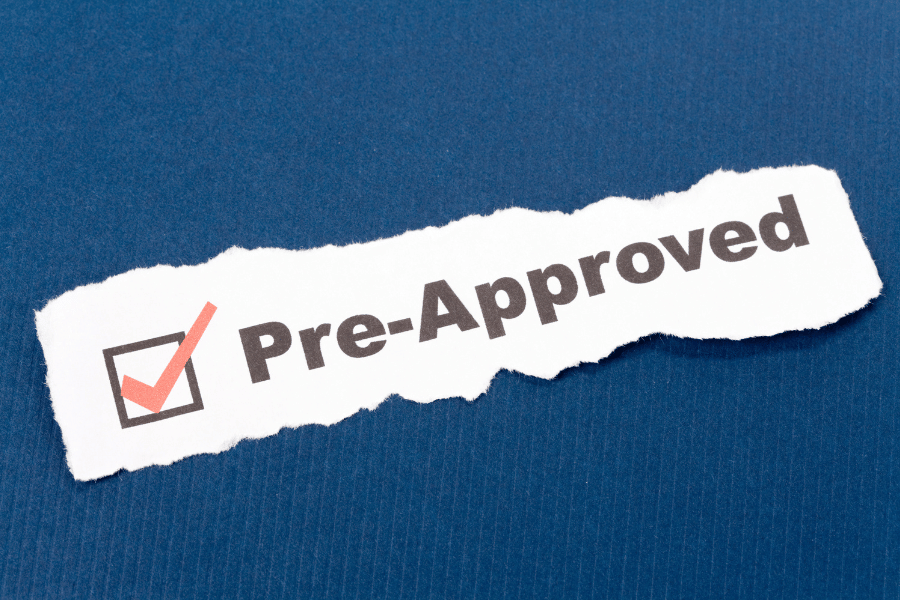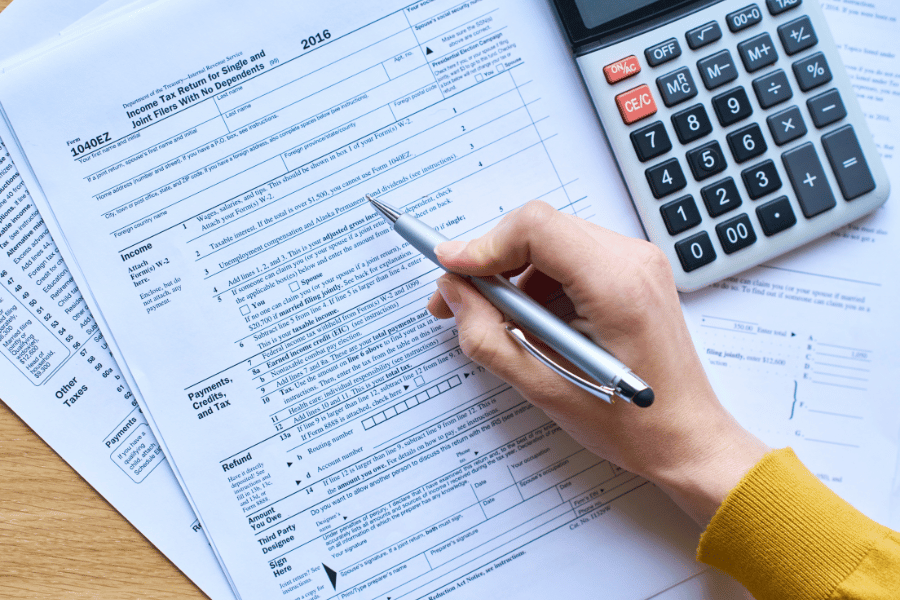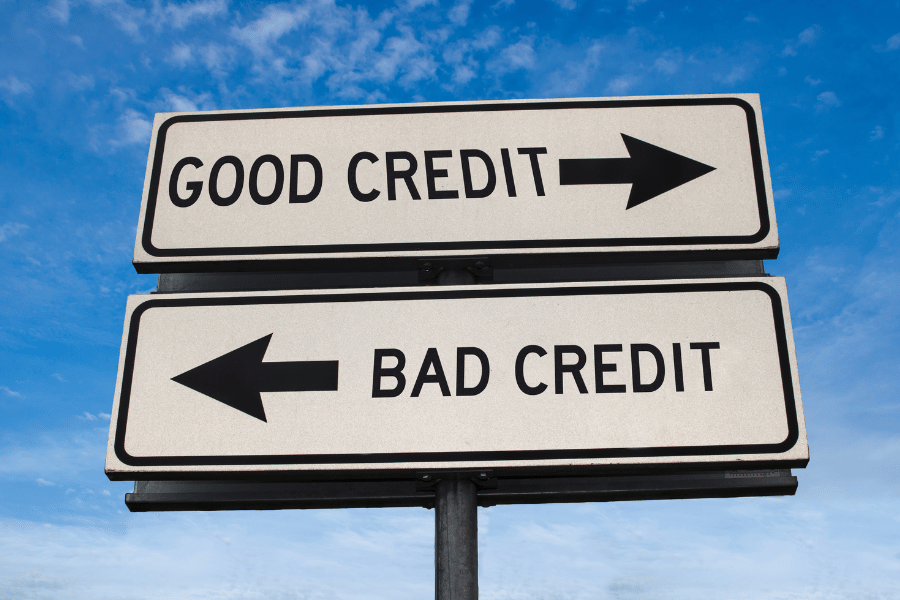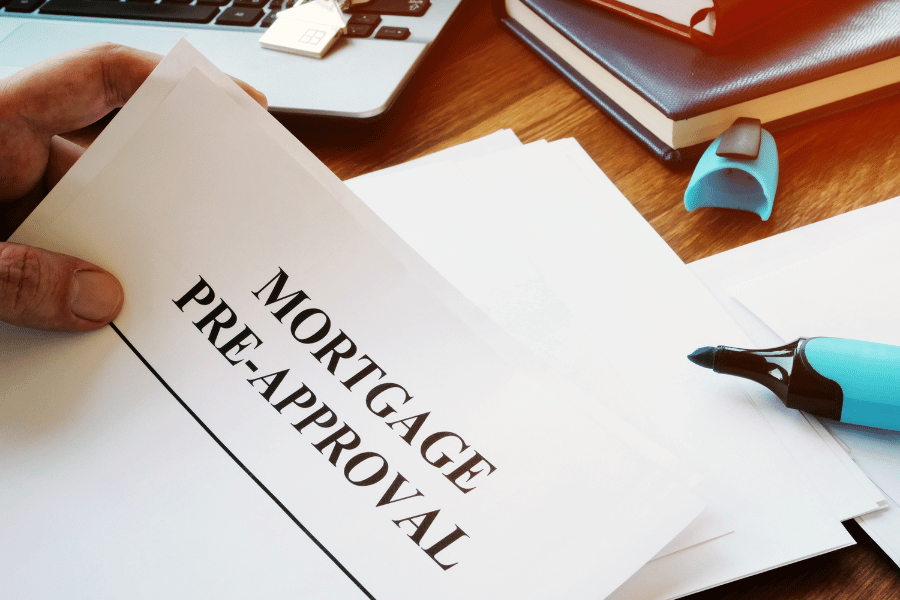Mortgage Pre-Approval vs. Pre-Qualification
What are the main differences between mortgage pre-approval and mortgage pre-qualification?
Whether you're a buyer or a seller, it can be all too easy to confuse the terms "pre-approval" and "pre-qualification." Although pre-qualification and pre-approval share some similarities, they are quite different.
As a home buyer, it is important to understand the differences and how they may impact your chances of buying a home, especially in a competitive real estate market, as we have here in Raleigh. In this article, we will define pre-approval and pre-qualification, explore how they differ when they should be used, and the steps that should be taken to complete both processes when obtaining a mortgage.
1. Pre-Qualification For a Mortgage
Mortgage pre-qualification involves submitting your income, debt, credit score, and estimated down payment to an online or in-person lender. This is one of the first steps in the home-buying process. The lender will provide an approximate mortgage amount you may qualify for based on the information.
Pre-qualification only offers a rough mortgage estimate and not an exact amount because pre-qualification does not involve thoroughly vetting your financial history. To determine the exact mortgage amount you qualify for, you must apply for pre-approval, which is discussed in further detail below.
Unlike pre-approval, pre-qualification is not always accurate because it does not take an in-depth look at your credit history. Financial documentation is not required during the pre-qualification period, so the lender cannot know the accuracy of the numbers and information you provide. Therefore, pre-qualification simply provides a rough estimate of what kind of mortgage you qualify for.
2. Pre-Approval For a Mortgage
Mortgage pre-approval involves submitting extensive financial documentation, including (but not limited to) tax returns, pay stubs, investment accounts, bankruptcies, divorce settlements, etc. The loan officer will also request a pre-approval application and conduct a thorough credit check if you want to keep up with your credit score. Credit monitoring services like Credit Karma can help you monitor your score.
It is important to note that a pre-approval letter for a mortgage does not guarantee you will receive financing from a lender. When a buyer obtains pre-approval, the lender simply states that they will likely approve you for a certain loan amount, but it is not a guarantee that they will lend you the money. If you choose to move forward with buying a home and pass the mortgage lender's underwriting requirements, you will receive loan approval, which is explained in additional detail below.

3. Loan Approval in Real Estate
After obtaining mortgage pre-approval, you and your real estate agent will begin looking at homes in your local market. When you find the house you like and make an offer, you will provide your mortgage lender with a copy of the purchase agreement.
The lender will then conduct a home appraisal to ensure the house is worth the asking price and begin underwriting your loan, which typically takes about 30 days or more. At this point in the home-buying process, the home you're trying to purchase will be listed as contingent until it closes. If all goes well, you will receive mortgage approval from your lender, meaning you can purchase the home.
4. What Documents Do I Need For Mortgage Pre-Approval?
When preparing to obtain mortgage preapproval in the state of North Carolina, there are several documents you may be asked to provide. Here is a list of items that are typically requested by the loan officer when obtaining mortgage pre-approval:
Mortgage Pre-Approval Checklist
- Bank and investment account statements from the past few months
- All statements from the past several months detailing outstanding loans, lines of credit, home rental payments, lease payments on cars, etc.
- Tax returns from the past two years
- Most recent pay stubs from current employer
- Gift letter (If you receive a gift payment from a family member or friend to assist in making the down payment. The lender asks for this to ensure that the amount is actually a gift and not a loan amount that will need to be paid back at some point)
- Any additional financial information, including:
- Explanation of credit inquiries (if you recently tried to lease a car or applied for a student loan, for example)
- Marriage licenses
- Divorce settlements
- Child support
- Bankruptcies

5. What Are the Advantages of Getting Mortgage Pre-Approval?
Obtaining mortgage pre-approval is the best way to prove to sellers that you are serious about buying a home. It demonstrates that you have gone through the steps necessary to determine how much you can afford in a home and you have the necessary paperwork to show for it. Some real estate agents will not work with buyers until they obtain mortgage pre-approval. After all, what is the point of looking at houses you're not sure you can afford?
Mortgage pre-approval sets you apart from buyers who have only completed pre-qualification and have not yet been pre-approved for a mortgage. This shows that you are serious about buying a home and gives you an advantage over the buyers who are just "shopping" for homes.
6. What is the Difference Between Pre-Approval and Pre-Qualification?
The primary difference between pre-approval and pre-qualification in real estate is that pre-approval helps buyers know the mortgage amount they will most likely qualify for, whereas pre-qualification just provides buyers with a very rough estimate.
Also, depending on the mortgage lender, pre-approval typically involves a fee. Pre-qualification, on the other hand, is free. Some lenders may waive the pre-approval fee to attract new buyers, while others may roll the pre-approval fee into the buyer's closing costs. Before submitting an application for pre-approval to a mortgage lender, obtaining a detailed list of all applicable fees is strongly advised.
Ask your mortgage lender if the pre-approval fee is refundable, as some lenders will not refund the application fee if you choose to walk away from the deal. Most mortgage lenders' application fees typically range between $300 to $400.
7. Does a Mortgage Pre-Qualification or Mortgage Pre-Approval Hurt Your Credit Score?
Pre-Qualification
Pre-qualification involves running a free soft credit check that doesn't impact your credit score. Because it does not involve running a hard credit check and taking a deeper look at your credit history, it will not impact your credit score.
Pre-Approval
Mortgage pre-approval involves running a "hard credit check," which impacts credit scores, whereas "soft credit checks" do not. However, if you receive mortgage pre-approval from multiple lenders, all credit inquiries are typically lumped into one, meaning your credit will only be affected once.
Typically, you must interview lenders within a certain timeframe so that it will not repeatedly impact your credit score, so it is important not to wait too long when deciding on different lenders.

8. Which is Better, Pre-Approval or Pre-Qualification When Buying a Home?
It is always best to obtain pre-approval when beginning the process of actively going out and touring homes with a real estate agent. Many real estate agents require that buyers obtain pre-approval before working with them to ensure that their time, your time, and the seller's time are not wasted.
9. How Long Does it Take to Get a Pre-Approval or Pre-Qualification Letter?
Pre-Qualification Timeframe
A lender can typically let you know if you may qualify for a loan and will have a potential mortgage/interest rate within a few minutes of submitting the pre-qualification paperwork.
Pre-Approval Timeframe
After a pre-approval application and all required documentation have been submitted, the lender typically will take about three to five business days to let you know if you are pre-approved for a loan. On average, a mortgage pre-approval letter is valid for about 60 to 90 days and can be updated if your income or any other applicable financial changes occur.
10. Are Mortgage Pre-Qualifications and Pre-Approvals Accurate?
Pre-Qualification Accuracy
Pre-qualification is not nearly as accurate as pre-approval because you do not need to share as much information with a lender. It is easier to accidentally provide incorrect information (perhaps you think your credit score is 620 when it is actually 650, etc.), so it does not always provide accurate information.
Pre-Approval Accuracy
Although the pre-approval varies from lender to lender, pre-approval is much more accurate than pre-qualification. The more rigorous questions the lender asks, the more accurate your pre-approval tends to be.
That said, you will not know your exact mortgage amount until you offer a home, the lender underwrites a loan, researches the home you wish to buy, and then assesses whether or not you qualify for the requested mortgage.
11. Mortgage Pre-Approval Process vs. Mortgage Pre-Qualification Process
Pre-Qualification Process
The process for obtaining pre-qualification can happen in as little as a few minutes and typically takes place online (although most lenders will guide prospective buyers through the pre-qualification process in person as well). The prospective buyer must provide basic information about their income, credit history, and debts. Within minutes, they will have an answer as to whether or not they may qualify for a loan and what kind of loan/interest rate they could qualify for.
Pre-Approval Process
The pre-approval process is more involved. Obtaining pre-approval involves submitting detailed financial information, as listed in the Mortgage Pre-Approval Checklist above. Here are some important steps to take before beginning the pre-approval process:
- Credit Score: Check your credit score on a site that does "soft credit checks," as a soft check will not impact your credit. Most lenders will require a credit score of 620 or higher, so check to ensure you're in that range.
- Credit History: Next, review your credit history to ensure there is no incorrect information on your account. Resolve all credit issues before applying for mortgage pre-approval.
- Contact Lender(s): After handling all credit disputes and organizing all documents listed in the Mortgage Pre-Approval Checklist (listed above), it's time to contact a lender. You can contact more than one lender if you don't feel comfortable working with the first or second lender you reach out to.
12. How Do I Get a Mortgage Pre-Qualification or Mortgage Pre-Approval Online?
Pre-Qualification Online
Most lenders will allow buyers to complete the pre-qualification process online. Many will also accommodate if you prefer to complete the process over the phone or in person. Research the lender you want to work with to complete the online pre-qualification process. They should have a pre-qualification form you must fill out on their website.
Pre-Approval Online
Because pre-approval is a more rigorous process, some lenders may require that you submit the documentation in person. If that is a deal-breaker for you, asking the lender if pre-approval can be completed online before working with them is important. If you are unsure where to find a trusted lender, your real estate agent, friends, or family may have some lender recommendations they can provide.

13. Should You Get Mortgage Pre-Approval OR Mortgage Pre-Qualification?
If you are serious about buying a home and have strong credit, low debt, high income, and a solid overall financial history, you can most likely skip the pre-qualification step and apply directly for pre-approval.
On the flip side, if you don't have great credit, significant debts, and unstable income, you may want to consider pre-qualification first to see if you will qualify for a loan. Skipping the pre-qualification step could mean a lot of wasted time (collecting all financial documents) and money (spent on the application fee), only to learn that you do not qualify for a mortgage.
14. What is Conditional Approval On a Home Loan?
After you have submitted an offer to buy a home, you will submit a purchase agreement to your mortgage lender. Your lender will then begin underwriting a loan. Additionally, the lender will check all financial documentation provided during the pre-approval process and will review details about the home you wish to buy to determine if you are approved for a loan.
If the mortgage lender requires additional information and/or asks that you resolve certain issues (called "conditions”), they will send you 'conditional approval,' meaning you must complete the task(s) the lender provides so that you are cleared to close on the home.
15. What is the Best Time to Get Pre-Approved or Pre-Qualified for a Mortgage?
The best time to get pre-approved or pre-qualified for a mortgage is before you begin looking at homes for sale. Once you find a home that you like, this will assure the seller that all of the prep work has been done and that a mortgage lender feels confident enough to loan you the money.

Mortgage Pre-Approval vs. Pre-Qualification - Key Takeaways
While both pre-qualification and pre-approval are important steps in the home-buying process, it is important to understand how strongly they differ. Pre-qualification can help new buyers assess if they can afford a home and the mortgage amount they may qualify for, whereas pre-approval provides buyers with a far more detailed and accurate assessment as to the loan and interest rate the buyer will most likely receive. You can find more information on how to get a mortgage in Raleigh here.



